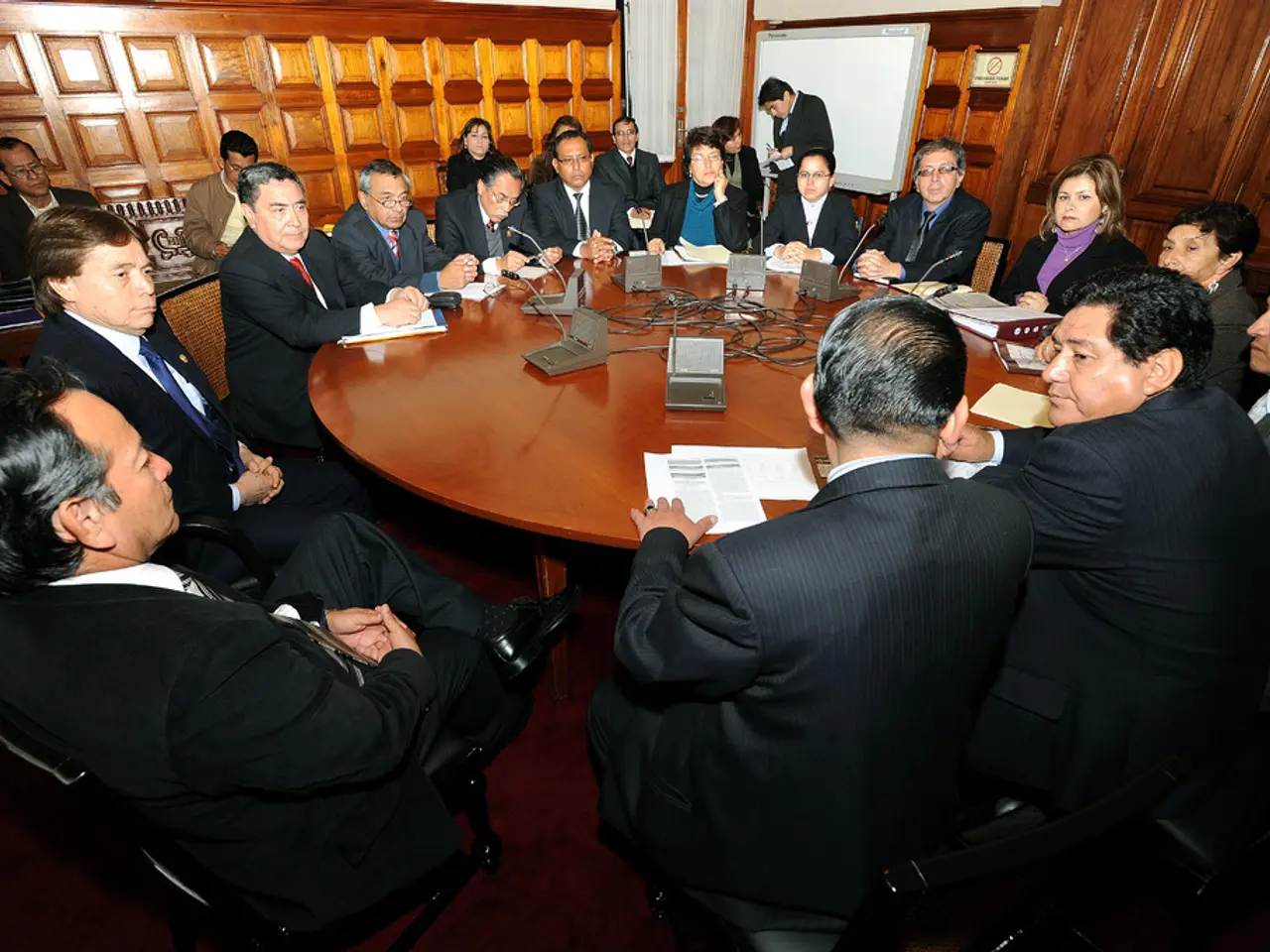Stablecoins, a type of cryptocurrency, have been the subject of interest for numerous South Korean banks, as they have submitted over 80 trademark applications for these digital assets. Learn more about this development here!
South Korean banks are making significant strides in the crypto and stablecoin sector, with several major financial institutions actively preparing for the anticipated regulatory reforms.
According to reports by the Maeil Kyungjae newspaper, KakaoBank, KB Kookmin Bank, Shinhan Bank, Woori Bank, Hana Bank, and local players like Busan Bank and K-Bank are all entering the stablecoin and crypto market.
KakaoBank, a leading digital bank in South Korea, plans to launch a Korean won (KRW)-backed stablecoin by mid-2025 as part of its digital transformation strategy. The bank has established a dedicated Crypto Task Force and is collaborating with the Bank of Korea on central bank digital currency (CBDC) trials, including digital wallets and remittance services. KakaoBank also intends to develop stablecoin issuance and custody services, leveraging its experience with real-name account infrastructure and robust KYC/AML protocols.
KB Kookmin Bank has aggressively prepared for the stablecoin market by filing more than 80 stablecoin-related trademarks, including 32 for KRW-based stablecoins and 49 for foreign currency pairs. This trademark activity signals the bank's strategic intent to secure intellectual property and position itself strongly ahead of anticipated regulatory reforms.
Shinhan Bank has formed a 20-member task force dedicated to developing and prototyping stablecoin services. The bank is conducting proof-of-concept tests and evaluating regulatory scenarios to fully integrate stablecoin offerings. This development is coupled with securing trademarks to protect its digital asset plans.
Woori Bank is pursuing a collaborative approach by launching a custodial venture called "Vitgo Korea" in partnership with foreign entities, aiming to create stablecoin custody services. It is actively working on signing business agreements and forming a consortium with other companies to enter the stablecoin market. This consortium initiative was underway by November 2024. The bank has also reactivated a digital asset team focused on researching and deploying crypto and blockchain services.
Hana Bank is exploring the technical infrastructure necessary to issue won-backed stablecoins and is building digital asset teams to prepare for the changing regulatory landscape.
These developments align with South Korea's pro-crypto regulatory stance under the current administration and aim to position local banks as leaders in the digital asset economy. South Korean banks are ramping up crypto and stablecoin initiatives ahead of new legislation, with Shinhan Bank deploying a 20-person task force to prototype services and secure trademarks in advance.
South Korea's Digital Asset Basic Act (DABA) offers one unified legal framework, including tokens, NFTs, and custody rules. The country is reviewing new bills to define stablecoin issuance, crypto custody, and digital asset exchange guidelines.
Sangmin Seo, head of the Kaia DLT Foundation, stated that South Korea's regulatory clarity could soon become a model for other countries. Korean politics views crypto as a narrative to gain voters' favor, positioning it as another national growth engine besides AI and semiconductors.
Woori Bank's Digital Asset Team is staffed by digital specialists and is reviving dormant projects like crypto custody and exploring alliances with blockchain firms. KB Kookmin Bank is running a virtual asset consultative body across its affiliates.
These moves by South Korean banks indicate a growing interest in the crypto and stablecoin sector and a commitment to positioning the country as a leader in the digital asset economy. The Maeil Kyungjae newspaper reports that this trend represents a broader effort by major banks to create in-house task forces to develop crypto custody, stablecoins, and related digital services in anticipation of impending South Korean regulatory reforms.
- South Korean banks, including KakaoBank, KB Kookmin Bank, Shinhan Bank, Woori Bank, Hana Bank, Busan Bank, and K-Bank, are entering the stablecoin and crypto market, with KakaoBank aiming to launch a Korean won-backed stablecoin by mid-2025.
- KB Kookmin Bank has filed over 80 stablecoin-related trademarks to secure intellectual property and position itself for regulatory reforms.
- Shinhan Bank has formed a 20-member task force to develop stablecoin services, conduct proof-of-concept tests, and secure trademarks for its digital asset plans.
- Woori Bank is partnering with foreign entities to create stablecoin custody services and is also reactivating its digital asset team to research and deploy crypto and blockchain services.
- Hana Bank is building digital asset teams to issue won-backed stablecoins and prepare for regulatory changes.
- With South Korea's pro-crypto regulatory stance and the creation of a unified legal framework for tokens, NFTs, and custody rules, these banks' efforts could soon serve as a model for other countries, positioning South Korea as a leader in the digital asset economy.




